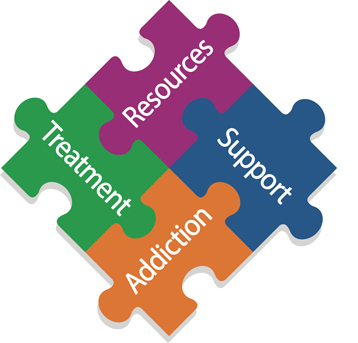A structured meth addiction treatment program can help break the cycle of substance use.
Comprehending Addiction Therapy: Discovering Reliable Programs for Alcohol Dependency Recuperation and Mental Health And Wellness Assistance
Launching the trip toward healing from alcoholism involves a thorough approach that resolves both the physical and mental aspects of dependence. meth addiction treatment. Clinical cleansing functions as the fundamental step, safely handling withdrawal signs and symptoms under specialist guidance. Simultaneously, psychotherapy and medication-assisted therapies are tailored to mitigate the underlying psychological wellness issues, frequently linked with addiction. This twin approach not just stabilizes the specific but likewise sets the stage for going over the consolidation of holistic treatments and support group important for lasting sobriety.

The Function of Medical Detoxing in Handling Alcohol Withdrawal
Clinical cleansing plays a critical function in the monitoring of alcohol withdrawal, working as the first action in the trip towards recuperation. This process carefully keeps an eye on and deals with the severe physical symptoms of withdrawal that take place when an individual quits consuming alcohol. The main purpose is to stabilize the individual physically and alleviate prospective wellness risks connected with withdrawal, such as seizures and ecstasy tremens.
Physician typically administer medicines to reduce signs and symptoms, take care of discomfort, and protect against problems. The regulated setting makes sure safety and security, addresses nutritional shortages, and prepares individuals for the next phases of addiction therapy. Effective cleansing is critical, as it develops the foundation for further restorative treatments, focusing on lasting recuperation and relapse avoidance.
Psychotherapy Techniques for Dual Medical Diagnosis Treatment
Following the stabilization provided by clinical detoxing, psychotherapy becomes a vital part in treating people with a dual diagnosis. Cognitive Behavioral Treatment (CBT) is frequently employed to resolve maladaptive thinking patterns, aiding individuals comprehend and manage their habits and emotions properly. Dialectical Behavior Modification (DBT), which highlights the growth of coping abilities to handle tension, manage emotions, and boost relationships, is especially advantageous. Integrative methods, incorporating elements from different restorative modalities, dressmaker therapy to private needs, boosting the efficiency of double diagnosis management. Through these psychotherapeutic techniques, individuals get insights into their addictive actions and mental wellness issues, promoting an alternative recovery process and significantly boosting their lifestyle.

The Relevance of Medication-Assisted Therapy (MAT)
Floor covering makes use of FDA-approved drugs, such as naltrexone, buprenorphine, and methadone, to maintain brain chemistry, obstruct the blissful impacts of alcohol, and minimize food cravings, leading the way for a lasting healing. By sustaining the organic basis of dependency, MAT addresses the thorough health needs of individuals, helping with improved outcomes in recovery programs.
Integrating Holistic Therapies Into Alcohol Addiction Recovery
Although Medication-Assisted Treatment (MAT) is crucial, integrating all natural treatments can significantly boost the recovery procedure for those battling alcoholism. All natural treatments include an array of non-medical recuperation methods that concentrate on recovery the mind, body, and spirit. These may include yoga exercise, meditation, acupuncture, and art therapy. Each of these practices aims to visit enhance mental wellness, lower stress, and enhance total well-being, thus supporting the psychological and psychological facets of healing. By incorporating such therapies, treatment programs can use a more comprehensive strategy that not only resolves the physical signs and symptoms of dependency but additionally fosters inner peace, self-awareness, and psychological resilience. This integration helps individuals develop healthier coping devices and a stronger foundation for lasting sobriety.
Browsing Support Systems and Area Resources for Sustained Recuperation
After attending to the individual's all natural needs in alcoholism recuperation, interest has to additionally be given to outside aspects that add to continual soberness. Support group and neighborhood resources play pivotal roles in this phase. Efficient healing websites programs highlight the value of constructing solid networks, which can consist of assistance teams like Alcoholics Anonymous, family members participation, and recuperation mentoring. Area sources such as sober living setups and neighborhood mental health and wellness services give useful assistance and a safeguard during vulnerable times. Involving with these sources urges great site liability, lowers sensations of seclusion, and improves resilience against relapse. Sustained recovery is hence seen not only as an individual's trip but as a community-supported procedure, promoting an atmosphere where regular healing is nurtured and celebrated.
Final Thought
In conclusion, efficient alcohol addiction recuperation programs include a diverse technique that includes clinical cleansing, psychiatric therapy, and medication-assisted treatment. Incorporating alternative treatments and leveraging support systems are essential for attending to both physical and psychological wellness difficulties. Such extensive treatment not just aids manage withdrawal signs yet also sustains long-term sobriety and psychological wellness, consequently boosting a person's capability to lead a healthier and much more fulfilling life post-recovery.